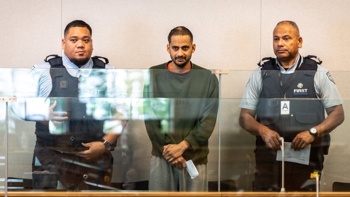Time is running out for the new Government to put together a mini-Budget before Christmas as promised, with the next finance minister, Nicola Willis, having about half as much time as her predecessor.
Willis has been managing expectations, saying the emphasis is on the word “mini”.
It comes as weeks of negotiations to form the next government appear to be nearing conclusion, with National leader Christopher Luxon saying Act and NZ First had both agreed to each others’ policy deals. Act’s board met last night. Although this was a regular two-monthly meeting, rather than a meeting called to look over the deal, Act leader David Seymour was able to consult the board on the deal he has arranged with National, fulfilling a requirement under the party constitution.
“We have got three parties all agreeing with each other’s policy programmes as well and we have now agreed how we are going to operate in Cabinet and how we are going to work together,” Luxon said yesterday.
He said the only outstanding issues were ministerial responsibilities, which include who gets the role of deputy prime minister.
Seymour made a pitch for that job yesterday, saying there was a “clear case” for Act to have the role given it was the “second-largest party in the Government and therefore if there’s a second role in the government that should go to the second party”.
NZ First leader Winston Peters would not answer questions about the deputy job when he left the Cordis Hotel in Auckland yesterday, after meeting with Luxon.
Willis, National’s likely candidate for deputy prime minister, will have her hands full with the mini-Budget.
After the 2017 election, Finance Minister Grant Robertson delivered a mini-Budget on December 14, 49 days after being sworn in on October 26.
That Budget was timed with the release of Treasury’s Half-Year Economic and Fiscal Update (Hyefu), a set of forecasts the finance minister has to ask Treasury to produce by the end of December under the Public Finance Act. There is an escape clause for the finance minister during election years, however, Willis has confirmed she will be delivering the Hyefu and will release her mini-Budget alongside it.
/cloudfront-ap-southeast-2.images.arcpublishing.com/nzme/3VZF2BYEPVB2RF2FIWJVU72FGQ.jpg) New Zealand First party leader Winston Peters did not stop for questions. Photo / Dean Purcell
New Zealand First party leader Winston Peters did not stop for questions. Photo / Dean Purcell
The Public Finance Act also requires the Hyefu be presented to the House before the end of the year, meaning Willis will need to have it published before the last sitting day - currently December 21.
If the new Government was sworn in next Monday, it would have just 24 days to produce a mini-Budget if it wanted to time that with the Hyefu.
Based on what National has already discussed in public, the scope of its mini-Budget is far smaller than what Labour produced in 2017. Then, Robertson unveiled Labour’s $5.5 billion Families’ Package, first-year free tertiary education, restarting Super Fund contributions, and a $2b capital injection for KiwiBuild.
Even on the campaign trial, Willis hinted her mini-Budget would be smaller, saying that it would set out “some of the savings and reprioritisations we believe are necessary to get New Zealand back on track”.
This would include things such as booking the 6.5 per cent cuts to “backroom” spending in the public service, and axing the likes of Auckland Light Rail and the clean-car discount scheme.
/cloudfront-ap-southeast-2.images.arcpublishing.com/nzme/5HITHXBX6NBQRM5BOSX27VFEFE.jpg) Prime Minister-elect Christopher Luxon and deputy leader Nicola Willis arrive at the Cordis Hotel for coalition talks. Photo / Michael Craig
Prime Minister-elect Christopher Luxon and deputy leader Nicola Willis arrive at the Cordis Hotel for coalition talks. Photo / Michael Craig
Most of the more complex work, such as her party’s promised tax cuts, was not promised to begin until July 1, 2024, giving Willis time to include them in the full Budget, which will be delivered in May. May would still require Treasury to burn the midnight oil. The Budget process typically begins in the second half of the year and is already well advanced.
Willis said the “full dog and pony show” would come in the May Budget and reserved the “possibility” of making economic announcements between the Hyefu and the Budget, meaning the next six months could be jam-packed with economic announcements.
The timing for Hyefu is particularly tight. In 2017, Treasury signed off the economic and tax forecasts on November 23, signed off the fiscal forecasts on November 27, and finalised the text on December 8. For Hyefu to include specific costings of the Government’s policies, they would need to be agreed to by Cabinet and costed before the forecasts are signed off.
There are a handful of fiscal policies National promised would begin on April 1 next year, the beginning of the tax year, and before the Budget.
This includes increasing Working for Families payments, costing $50m, and partly reinstating interest deductibility for landlords, costing $41m.
The party is also changing the way benefits are calculated, which will have the effect of reducing the annual increase to benefits, saving $40m next year.
Thomas Coughlan is Deputy Political Editor and covers politics from Parliament. He has worked for the Herald since 2021 and has worked in the press gallery since 2018.
Take your Radio, Podcasts and Music with you









